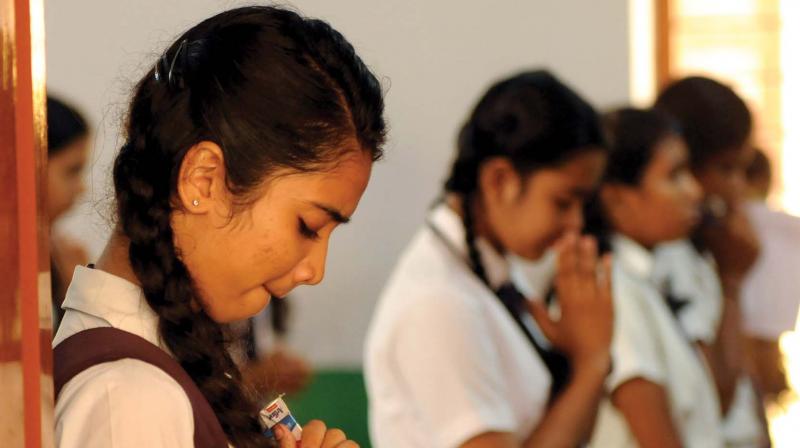Kerala: Students in for raw deal this summer

Thiruvananthapuram: The unprecedented heat in the state is posing a threat to the performance of higher secondary and Class X students taking public exams this summer. As per the indication, the rainfall from January 1 showed a deficit of 99 percent. It has also signalled a post-monsoon dry spell. There is also a threat to students developing summer diseases due to rising mercury levels. Students should be extra cautious to avoid diseases during exams. DPI K. V. Mohan Kumar said students could carry only water to exam centres as per norms, not eatables.
All Kerala School Teachers Union (AKSTU) president N. Sreekumar said the decision was to conduct the SSLC exams in the afternoon and the higher secondary exams in the forenoon. This decision was taken as part of the efforts to improve the security of the question papers following complaints of question paper leak some years ago. "It has to change as conducting exams in the afternoon was not a good idea in such hot conditions," he said.
He said the ideal thing was to conduct all the exams in the morning and the department should think of holding the higher secondary and SSLC exams on alternative days. "It was keeping in mind of the summer season that some years ago the government decided to allow students to bring water to examination halls in unlabelled bottles," he said. Psychologist Aravind Thampi said the present exam period was not ideal for states in the south as it was the hottest summer here.
The problem was because the season was fixed considering the whole of the country as a single administrative block. In such circumstances, it was not possible to change the schedule further, because if changed a little it would be the sweltering climate in North India, Mr Thampi said. "One thing that can be considered is conducting the exams early in the day. Schools should also provide adequate drinking water and fans in halls," he said.
"North Indian states due to the extreme conditions there have been keeping ORS fluids ready in schools all the time. Perhaps, we do not take such precautions as we do not have such extreme conditions." One of the other things was that the students would feel more lethargic in summers making them physically weak resulting less concentration in studies. Students would have to be extra energetic to overcome laziness during summer, Mr Thampi said.

